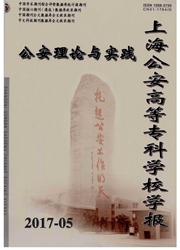

 中文摘要:
中文摘要:
随着全球化的发展,国际形势日益复杂,国际间的警务合作更加频繁,涉外警务工作中的跨文化交流已成必然趋势。我们将结合联合国教科文组织发布的《跨文化能力概念与行动框架》,对涉外警务跨文化能力范围进行进一步延伸,提出除了普遍认为的文化渗透和语言运用外,跨文化能力还应包括建立身份认同、及时反思和学会适应,并以此提出转变培养方式的一些建议,并通过结合互联网技术、过程性评估和实践教学来促进学生跨文化能力的提升,培养真正符合国家发展战略的复合型涉外警务人才。
 英文摘要:
英文摘要:
With the development of globalization, the international situation is becoming increasingly complex and the international cooperation in police affairs is more frequent. Therefore, intercultural communication has become a must in the foreign affairs policing. This thesis, combined with the Intercultural Competences Conceptual and Operational Framework issued by UNESCO, will attempt to extend the scope of intercultural competences of foreign affairs police, putting forward that, except for such the universally acknowledged viewpoints as cultural infiltration and language application, the intercultural competences should also take the sense of identity, reflexivity and resilience into consideration. In light of that, the following suggestions could be taken to improve students' intercultural competence, which is the application of internet technology, process evaluation and teaching in practice, so that we could cultivate the interdisciplinary foreign affairs police which meets the needs of national development strategy.
 同期刊论文项目
同期刊论文项目
 同项目期刊论文
同项目期刊论文
 期刊信息
期刊信息
